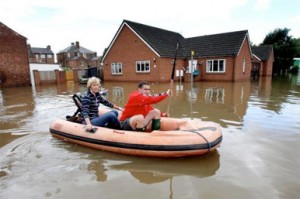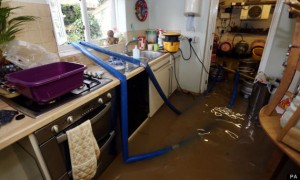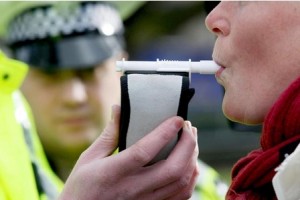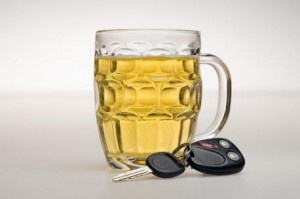12 Points On License What To Do Next
12 points on license are you at risk of reaching it?
Exceptional hardship
12 points on license for many drivers are apparently successfully pleading that being disqualified would cause ‘exceptional hardship’.
Andy Goldby, Director of Underwriting and Pricing at Direct Line, said: “It seems ‘exceptional hardship’ isn’t that exceptional after all. Someone who has accumulated more than 12 points on their licence has shown a complete disrespect for the law. It sends out an entirely wrong message that these individuals are still allowed to drive.
“Drivers with points on their licence are statistically more likely to have a collision and the likelihood increases with the more points they have. The system is being abused and it needs to be stopped.”
With all of the speed cameras around these days it is a surprise anyone has a licence. Get caught 4 times within 3 years and you are on a minimum of 12 points. With Government proposals to increase the fixed penalty for some speeding to 6 points you could be on 12 points by breaking the speed limit twice.
The effect of losing your licence can be devastating, you could lose your job, your livelihood and all that goes with it. It’s hard enough to get a job these days but without a licence it can be almost impossible.

The totting-up system
Motorists who commit driving offences can be given points on their licences rather than instant bans.
A speeding punishment can include between three and six points, depending on the seriousness if the charge, while driving without due care and attention can incur up to nine points.
Court guidelines say that any driver who accrues 12 points in a three-year period should be automatically banned for six months.
However, the court is allowed to use its discretion when deciding whether this ban should be imposed.
Any defendant who can show that disqualification could lead to “exceptional hardship” – for example if a ban would lead to them losing there job.
Home insurance to rise as insurers count cost of recent flooding
Home insurance premiums have risen over the past three months, according to new figures from the AA. It said premiums are likely to continue going up, adding that some homes are at risk of becoming uninsurable unless insurers and the UK Government reach agreement soon on cover for flood-risk properties.
The average cost of buildings cover increased 2.4 per cent to £181 in the three months to September, leaving it 5.2 per cent higher now than a year ago, said the AA (based on it’s “shop around” summary, an average of the five cheapest quotes). Contents cover rose 1 per cent to £242 a year, and 7.2 per cent over 12 months.
How Flood Insurance Works
It is commonly assumed that home owners policies will cover losses in the event of a flood. However, if a home owner wants protection against flood damage, it is necessary for the home owner to purchase a flood insurance policy, as most home owners policies do not cover damage incurred from a flood.
What to do if insurers request further information about your property
An Insurance Related Request (IRR) is a letter which some insurance companies ask for to help them consider whether they will renew your housing insurance or give you a new quote.
The standard IRR provides information about:
- whether your property falls within or outside the area at risk of flooding
- whether there are any defences in the area and the standard of protection that they provide
- how likely flooding is, taking into account any risk management measure such as flood defence barriers in the area
- whether there are any plans for flood risk management measures in the area
Having said this, there are always ways to keep your premiums down and enhance your chances of getting affordable cover. For example:
1. Ensure there is sufficient insulation on water pipes and lagging on the cold water pipe.
2. Get someone to check your property for damage if you’re away for a lengthy period.
3. Mending any leaky taps or radiators.
If larger measures are taken to protect your home, make sure you either tell your insurer or shop around when your cover expires, as your risk level may be lower.
Almost 200 arrests for drink driving in December
Almost 200 drivers have been arrested for drink driving or drug driving offences by Avon and Somerset Police in December.
There have been a total of 180 arrests as part of Operation Tonic – the annual Christmas campaign. Last year 231 drivers were arrested during the same period.
Drivers caught drinking and driving or driving while under the influence of drugs risk a fine of up to £5000, a minimum 12 month driving ban, a criminal record and could end up behind bars and without a job.
Police want motorists to take care during the build-up to the New Year celebrations. Anyone planning to go out and celebrate the New Year is being advised to nominate a non-drinking driver, arrange alternative transport and leave the car at home.
Despite the high number of arrests the majority of the public are aware of the dangers of drink and drug driving and are responsible about not getting behind the wheel while impaired.
These people have a big part to play in getting the message across to the minority who are prepared to take a chance.
Traffic Sergeant Pete Stringer said:
“It is concerning that we have made so many arrests since 1 December and it appears that some people just aren’t getting the message.
It is pleasing though, that we are catching people who are prepared to take a risk and getting them off the roads before they can kill or seriously injure someone.
Between now and the new year, officers will be out in force on our roads and if you drink or take drugs and drive we will catch you and you face losing your licence.
People need to understand that drink driving is simply not acceptable and the police will keep making arrests for as long as motorists keep putting lives at risk through drink or drug driving.”
Drinking and Driving (drunk driving) is a serious offence and carries a mandatory ban for a minimum period of 12 months.
You can only avoid a drink driving ban if you can defend the allegation, or if you can prove that their were special reasons in relation to the reason why you were driving whilst over the limit.
Breath Readings.
The legal drink driving limit is 35 milligrams per 100 millilitres of breath. If your breath reading is under 50 milligrams then you will be offered a blood or urine test to double check the breath reading. If your blood reading comes out above the drink driving legal limit of 80 you will be charged with drink/drunk driving.
Some defences to drink driving.
- Showing that you were not driving.
- Denying that you were driving on a road or in a public place.
- Arguing that you consumed the alcohol that took you over the drunk driving limit after you stopped driving (otherwise known as a hip flask defence).
- Denying that you were over the limit and arguing that the police evidence is unreliable.



